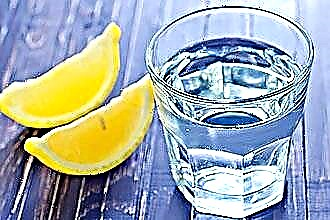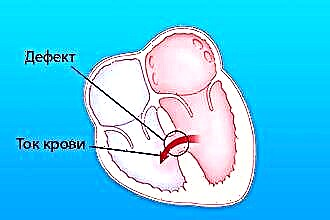Can hot drink be consumed with angina? Tonsillitis (tonsillitis) is one of the diseases that are most often provoked by bacteria, in particular saprophytes, staphylococci, streptococci, etc. When the palatine and pharyngeal tonsils are affected by the pathogenic flora, severe inflammation of the mucous membrane is observed. Drinking very hot drinks can negatively affect the state of the ciliated epithelium, which will only prolong the patient's recovery period.
 Drinks, the temperature of which exceeds 60 degrees, can injure the mucous membrane. Under the influence of hot drinks, the hyperemic tissues become inflamed even more, which contributes to an increase in swelling. This, in turn, leads to an aggravation of the local manifestations of tonsillitis, as a result of which the patient experiences pain during swallowing.
Drinks, the temperature of which exceeds 60 degrees, can injure the mucous membrane. Under the influence of hot drinks, the hyperemic tissues become inflamed even more, which contributes to an increase in swelling. This, in turn, leads to an aggravation of the local manifestations of tonsillitis, as a result of which the patient experiences pain during swallowing.
Effects of hot drinking
Hot drinks can be consumed with ARVI, not provoked by the development of adenoviruses. It is advisable to drink drinks with a temperature of more than 50 degrees only in the absence of hyperemia and catarrhal processes in the lymphadenoid tissues of the pharynx. Otherwise, the development of complications, in particular burns and purulent inflammation, is not excluded.
Many patients believe that the hot liquid will only kill pathogens. Yes, many types of bacteria die at temperatures over 50 degrees. However, it should be borne in mind that prolonged exposure to heat is required to destroy them. Hot drinking does not contribute to the elimination of pathogens, which is due to the short exposure to high temperatures on the foci of inflammation in the mucous membrane.
It should be noted that trauma to the oropharyngeal mucosa leads to a decrease in local immunity. This can become an impetus for the development of opportunistic microorganisms that inhabit the surface of the ciliated epithelium. In other words, if you drink tea, the temperature of which exceeds 50 degrees, you can provoke an increase in the pathogenic activity of Staphylococcus aureus, yeast-like fungus, etc.
Drink requirements
With the development of acute tonsillitis, an adult must strictly observe bed rest. Failure to comply with these recommendations in 45% of cases leads to the development of severe complications, in particular meningitis, sepsis, encephalitis, pyelonephritis, myocarditis, etc. In addition, it is very important to adhere to the drinking regime, due to the risk of dehydration.
Angina patients often complain of severe sore throat. Despite this, during the period of treatment, it is necessary to provide the patient with plenty of drink. When choosing the right drink, the following recommendations should be taken into account:
- the liquid should contribute to the intoxication of the body and maintain the water-salt metabolism at the proper level;

- the composition of drinks should include useful components that can make up for the lack of vitamins and microelements in the body;
- the liquid should be mildly acidic to prevent irritation of the ciliated epithelium.
Drinks must have a pronounced bactericidal or bacteriostatic effect. This will contribute to the destruction of pathogens in the foci of inflammation, thereby speeding up the healing process.
Why is dehydration dangerous?
Often, sore throat is accompanied by hyperthermia, which contributes to intense sweating and, accordingly, dehydration. In conditions of a high concentration of metabolites of pathogenic bacteria in the blood and cells of the body, a decrease in the amount of fluid in the tissues leads to an increase in the concentration of toxins. This affects the patient's well-being and the body's ability to resist microbes.
It is water that stimulates the activity of ionic protein pumps located in cell membranes. Due to this, the body not only synthesizes ATP, but also removes harmful components from the cells. Maintaining homeostasis at the proper level helps to increase local and general immunity. Drinking plenty of fluids can be considered one of the key components of the therapy of ENT disease, due to which the regression of inflammation in the affected tissues is accelerated.
Important! Dehydration of the body interferes with the normal assimilation of medications, which affects the effectiveness of pharmacotherapy.
Effects of dehydration
Dehydration of the body negatively affects not only the patient's well-being, but also the body's resistance. Dehydration suppresses the activity of immune cells, as a result of which immunodeficiency diseases develop. In particular, against the background of the development of tonsillitis, it increases the risk of scleroderma, lupus erythematosus, bronchial asthma, etc.
Treatment of severe systemic diseases is extremely rarely reduced only to rehydration of the body. Violation of water-salt metabolism in cells triggers pathological reactions, the correction of which may take more than one month. To prevent the occurrence of severe systemic complications, in the event of colds and tonsillitis, one should not neglect large amounts of warm drink.
Black tea
Black tea is a stimulant of biochemical processes in the body, which helps to maintain water-salt metabolism in tissues. The drink has an immunostimulating effect, therefore it is recommended to use it with the development of most colds. The medicinal effect of the product is due to the following properties:
- antipyretic - stimulates sweating, due to which there is a natural elimination of hyperthermia;
- antitoxic - promotes the elimination of toxic substances and metabolites of pathogenic bacteria from tissues;
- decongestant - normalizes the outflow of lymph from the hyperemic tissues of the pharynx.
It is advisable to use weak tea with lemon in case of subfebrile fever to reduce the temperature. The components of the drink contribute to the restoration of the hydrolipid balance in the cells, as a result of which the local immunity increases.
Green tea
Green tea is a powerful antimicrobial agent that has a pronounced bacteriostatic effect. It has a positive effect on the work of the gastrointestinal tract and the cardiovascular system, which greatly reduces the risk of myocardial inflammation during the development of acute tonsillitis. Regular consumption of a weak drink with lemon contributes to detoxification of the body.
Important! People suffering from hypotension should not consume large quantities of green tea. It helps to reduce blood pressure and, as a result, a deterioration in the patient's well-being.
To enhance the bacteriostatic properties of tea, add a little peppermint and lemon balm before drinking. A warm drink with lemon tones the body and prevents dehydration. For this reason, it is simply necessary to use it for hyperthermia and subfebrile fever.
Recipes
Can green herbal tea be brewed? Medicinal herbs only enhance the therapeutic effect of a warm drink. During the preparation of the drink, linden, medicinal chamomile, dill and other herbs can be included in its composition. To stop local manifestations of acute tonsillitis, the following nuances must be taken into account when preparing a drink:
- mix 2 tsp. green tea, thyme, St. John's wort, linden and mint;
- Pour the chopped herbs into an enamel pan;
- pour 1 liter of warm water over the herbs and bring to a boil;
- strain the cooled liquid and use with honey.
Warm tea has a beneficial effect on the mineralocorticoid function of the adrenal glands. With its help, you can stop sore throat, myalgia and dizziness.
For the preparation of a medicinal drink, it is more advisable to use large leaf tea without flavors and additives.
Is coffee good for you?
Can I drink coffee with the development of tonsillitis? The composition of coffee contains approximately 20% of active substances that determine its therapeutic properties. The product contains caffeine, which stimulates blood circulation and the activity of the nervous system. For hypertensive patients, coffee should be replaced with chicory. It does not contribute to an increase in blood pressure and the onset of a hypertensive crisis.
In the absence of problems with the cardiovascular system, you should stop drinking coffee at an elevated temperature. Acceleration of blood circulation will create additional stress on blood vessels and heart muscle (myocardium), which can cause a sharp deterioration in health. In addition, caffeine contributes to dehydration and, consequently, an increase in the concentration of toxic substances in the blood.
The daily dose of coffee and caffeinated drinks should not exceed 300-400 mg.
Beverages such as coffee, soda, and hot drinks stimulate sweating, which dehydrates the body. To prevent moisture loss, it is advisable to add a pinch of salt to the liquid. It prevents the removal of moisture from the tissues, due to which the turgor in the cells increases.
Lemon
Lemon tea is the best drink recommended for use during the development of acute tonsillitis. The product contains a large amount of flavonoids, ascorbic acid, vitamins A and E. They help to increase local and general immunity, thereby accelerating the process of destroying pathogens in the inflamed palatine and pharyngeal tonsils.
How do lemon drinks work on the body? Liquids with a high concentration of citric and malic acid contribute to the creation of an acidic environment in the affected tissues. Most of the pathogenic bacteria die when the acidity in the pharynx increases, as a result of which their number decreases. Regular consumption of lemon tea helps to reduce discomfort in the throat and increase local immunity.
It is undesirable to consume pure lemon to treat a sore throat. It contains a large amount of acid, which contributes to irritation of the mucous membrane and an increase in swelling in the tissues. To soften the action of acids, thin slices of citrus are poured with honey and after 15-20 minutes they are eaten with warm tea.
Drink recipes
What can an adult drink with the development of tonsillitis? Drinking plenty of fluids is an addition to the main therapy, but without observing the drinking regimen, the process of treating an infectious disease can take one and a half to two weeks. In order to replenish fluid reserves in the body and normalize metabolic processes in tissues, it is advisable to use herbal drinks.
The most popular and effective remedies for sore throats include:
- Ivan tea broth: pour 2 tbsp. herbs 1 liter of cold water; bring the liquid to a boil and leave for 2 hours; drink 50 ml of strained broth 4-5 times a day;
- infusion of anise fruits: pour 1 teaspoon of anise fruits with 250 ml of boiling water; leave the liquid for at least 1 hour, then strain; drink 100 ml of infusion for 7 days 15 minutes before meals;
- infusion of elecampane root: pour 1 tbsp. crushed root 300 ml of boiling water and leave for a day; drink 1 tbsp. infusion for 5 days every hour.
Important! Do not use elecampane infusion with low stomach acidity and kidney dysfunction.




